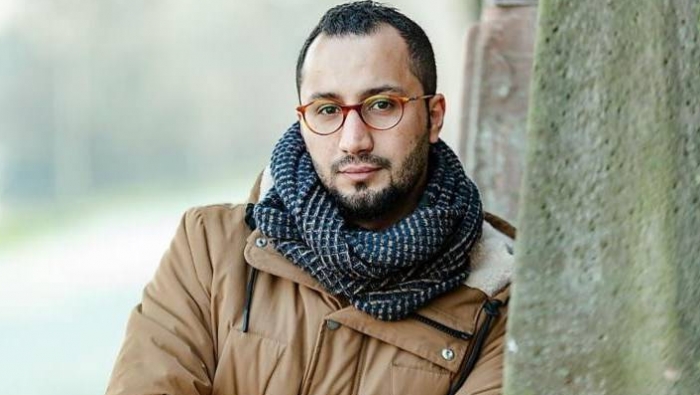BALADI NEWS
The Samuel Fisher publishing house in Frankfurt, Germany, has recently published a novel to young Syrian writer, Nazir Hanafi Al-Ali, entitled Space Without Windows.
The novel monitors issues of love, war, homeland, exile and human loss between injustice in his homeland and his escape, inspired by the years of loss suffered by the writer, from arrest, torture and immigration to the stability in Germany where he now lives.
Al-Ali comes from Deir Ezzor, he studied dentistry at Tishreen University in Lattakia.
In mid-2014, al-Ali left Syria for Turkey, and then Germany, a forced immigration imposed on him like many Syrians. As a journalist, he began to ask questions that occupied the conscience of any Syrian, questions about the meaning of the homeland and exile, and the worlds that lie between them.
Al-Ali was imprisoned in 2012 after his arrest from his university for a short period, but this experience meant a lot to him. He was severely beaten and tortured, and witnessed all sorts of cruelty in the security branch in Latakia.
“In the regime's prisons, I saw exactly the outright violence of the regime, a different type to what he used in his war against the Syrian people.”
After his release, Al-Ali left Deir Ezzor immediately after leaving university. In Germany, he published several articles in German newspapers and between 2016-2017 he was columnist for Der Spiegel magazine entitled The Syrian, where he wrote about topics of exile, identity, and revolution. He also edited a book entitled Neue Rundschau in which he collected Syrian and German views on the question: “Syrian Revolution - a media revolution?”
In the midst of his journalistic work in 2017, he began writing his first novel, Space Without Windows, his debut in the world of literature.
Al-Ali, who lives in a suburb of Berlin, pointed out that he chose the title to be a key to the novel and a shortcut to its theme, the individual’s loss between injustice in his homeland and his escape from it. In other words, blocked by oppression and tyranny with no escape.
Source: Zaman Al-Wasl.

